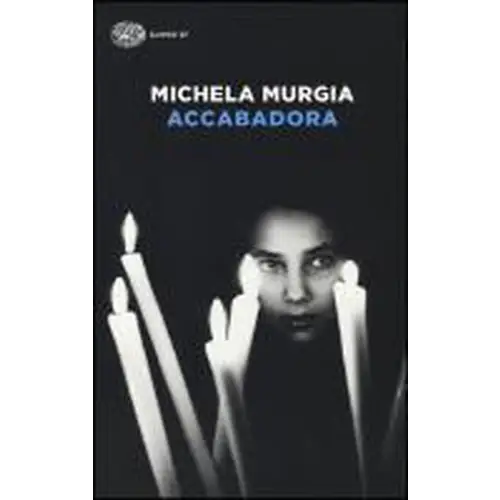Maria and Tzia Bonaria live together as mother and daughter, but their bond possesses the special value of self-chosen connection. The old seamstress saw Maria stealing in a shop and decided to take her in, because "sins, like people, only exist when someone notices them." Now she has much to teach the stubborn and lonely girl: how to sew buttonholes, prepare for the challenges ahead, and the humility to welcome both life and death. After all, "no one lives their day without fathers and mothers around every corner." Why Maria lives in Bonaria Urrai's house remains a mystery to the residents of Soreni. Gossip follows the old woman and the girl, but the reason is simple: Tzia Bonaria decided to raise Maria and make her heir, in exchange for companionship and care when she needs it.
As the fourth daughter of a widow, Maria is accustomed to seeing herself as "the last." Therefore, the attention and respect of the old village seamstress surprise her, offering her a home and a future, and above all, freedom. "Suddenly, it seemed as if it had always been this way, as mother and daughter, in a less guilty way." Yet, a mysterious aura surrounds this old woman dressed in black and her long silences, with a shadow of fear in the eyes of those who meet her. Nighttime excursions, of which Maria understands little, and an almost age-old wisdom about life and death are her hallmarks. What everyone knows, but Maria doesn't realize, is that Tzia Bonaria Urrai not only makes clothes and comforts souls, but also brings a merciful death when necessary. Her role as accabadora, the last mother, is tender and definitive.
Sardinia in the 1950s is an ancient world on the brink of change, with its own rules and prohibitions, an ancient language, and silent, shared agreements. The community functions like an organism, instinctively aware of its needs and solutions, uniting two lonely people, respecting inviolable bonds, and bringing an end to those who seek. Michela Murgia uses literature with powerful, poetic language to illuminate this complex theme without simplifying it. She knows how to pose questions to our society while depicting a world where answers are as clear as letters in an elementary school textbook, when objects and their names were mysteries not yet separated by analysis.
Intertaal offers reliable materials with fast delivery, ideal for education, work, or self-study. This book is suitable for advanced Dutch learners (level B2-C1) who are interested in engaging literary experiences and cultural discoveries.

